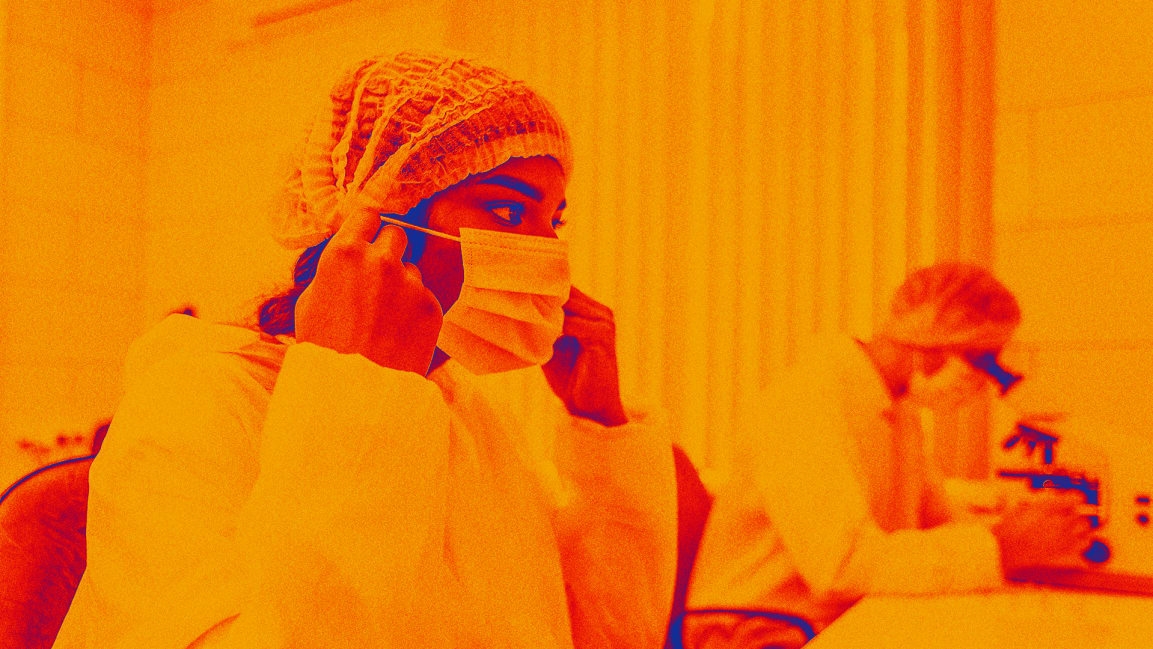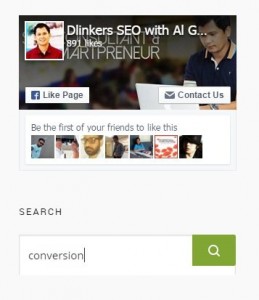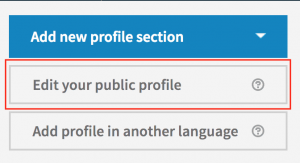By LARA SETRAKIAN

A star entrepreneur in Armenia, Marina Aghayan is an embodiment of her country’s ambitions in biotechnology—and a reflection of its grit. From her hometown of Yerevan she went as a graduate student to Spain, subsisting on a food budget of 3 euros a month.
“I found a place to buy bread with 25 slices for 33 cents,” Aghayan tells me. “I found out that when you cook rice—80 cents for 1 kilogram—you triple the size and the mass of the rice. So it’s really very nice to use when you’re suffering.”
Quickly learning to overcome hunger and adversity, she began publishing prolifically in the field of materials science and went on to earn a PhD in Estonia. Last year her journey came full circle: She returned to Armenia and founded AIP Scientific, a bioengineering firm that produces customized orthopedic implants. The company uses 3D printing and biodegradable materials that promote new bone growth. Aghayan is also cofounder and CEO of Fact Industries, a bio- and material engineering company in Estonia that develops 3D-printing prototypes for the European Space Agency.
I met Aghayan a few months after I moved to Armenia with my family. It was an early-pandemic lifestyle move: My husband and I, born in the U.S. and Canada, respectively, both grew up in ethnic Armenian households. We thought it would be a great experience for us and our kids to weather the lockdowns in Yerevan while absorbing the culture and language plus roaming the mountains and monasteries in the countryside. What we didn’t anticipate was meeting entrepreneurs like Marina Aghayan, who stunned us with their passion, perseverance, and potential, and quickly turned us into angel investors in this country.
Aghayan is part of the vanguard of biotech entrepreneurs aiming to build a production hub for niche products, innovative software, and mathematical models in Armenia. In the quietly emerging ecosystem of companies and educational initiatives, many of the standout founders are women like her, representing a blend of technical skill and exceptional determination. According to the Armenian Bioinformatics Institute, 60% to 70% of professionals in biotech are women (compared to an estimated 47% in biotech companies worldwide). And they are positioning Armenia’s biotech sector for growth.
Those women founders are among the reasons I am convinced that Armenia is a prime destination for global tech investors and impact accelerators. Their stories and the sector opportunities they’re creating are too compelling to miss—a classic case of underinvestment in women and in emerging market technology clusters. Despite the strong foundation and meaningful openings for the Armenian biotech industry, biotech startups here attracted roughly $50 million in venture capital investment in 2021, a fraction of the $3.6 billion invested in the sector globally.
Given the talent and opportunity in this country, more investors and impact funds should include Armenian ventures in their pipelines. They’d be in good company: Earlier this year Nvidia, a global high-tech giant with a significant AI and machine learning portfolio, opened a research center in Yerevan. “There are a lot of great brains over here that can contribute to what we’re building,” Lev Lebaredian, a VP at Nvidia, said in a local media interview.
Armen Kherlopian, cofounder of BAJ Accelerator, which supports Armenian biotech firms, was also driven to invest after seeing strengths in human capital and talent development. “I think it’s something in the educational system. The women are excelling,” Kherlopian says. A native of New Jersey, he completed his PhD in biophysics with a focus on machine learning at the Weill Cornell Graduate School of Medical Sciences.
“The mathematical prowess you see here is now making its way into biotech,” Kherlopian observed from his new home in Yerevan. As one central example, he noted that in Armenia, “computational drug design, building medicines by computer, is making major strides.”
Jack Topdjian, a partner at Healthcare Equity Angels, a syndicated healthcare and biotech investment firm in Miami, says that something big is happening here. It compelled him to invest in the country and begin advising startups, looking for areas where the small landlocked country can excel.
“Several AI applications in biotechnology, personalized medicine, genomics, and agriculture are already making their way from the labs and early-stage companies to global markets,” he says. “The two areas that impressed me are the acceleration of R&D and precision medicine. It’s the combination of deep computational science across artificial intelligence, machine learning, advanced visualization, and quantum computing along with a deep expertise in medicine, biotechnology, and genomics fields,” Topdjian says. “You need these complex sciences working in tandem to make big breakthroughs happen.”
By leaning into that intersection he sees what he considers Armenia’s homegrown advantages: Its deep pool of human talent, relevant fields of advanced education, cost advantage, and diaspora connections to major research centers across the world. He predicts venture investment in the country could double by next year.
Enter Roza Bejanyan, another female founder leading her country’s biotech surge. Her company, Medpoint Technologies, is building tools for earlier and more precise diagnosis of diseases including pediatric cancer, brain cancer, and lung cancer using digital pathology: AI algorithms applied to analyzing clinical samples. One of the company’s products is a bloodless, noninvasive AI-powered test based on nanostructures for early-stage lung cancer and respiratory diseases.
From her base in Yerevan, Bejanyan leveraged some powerful advantages in building her algorithms—foremost, a trove of biomedical data that was easier to access than in other countries. “In post-Soviet countries medical data is more centralized,” she says. “As long as the patient has agreed you can use their data.”
The second advantage was a deep pool of talent, specifically in the form of the well-trained pathologists who could collaborate with biotech startups. The presence of specialized pathologists in Armenia and surrounding countries has helped Bejanyan move forward faster with product development. “Data annotation was ?the most critical limitation in having the kind of data we need to train our AI model,” she says. “We need whole slide images of a biopsy, annotated and classified by a pathologist. . . . It’s impossible to generate a big amount of data without these advising pathologists.”
She is now turning those doctors into a product unto themselves, building a platform for pathologists in the region who can annotate biomedical data for tech companies around the world. The digital delivery of products and processes also makes it easier to form joint ventures: Denovo Sciences, an early-stage biotech company in Armenia, is collaborating with Emory University to codevelop therapies for hepatitis B and with the University of California, San Diego, to do the same for hepatitis C.
Denovo uses AI to accelerate drug discovery. Irina Tirosyan, the company’s lead data scientist, is also a lecturer at the American University of Armenia, educating the next generation of specialists in her field. That is part of a unified strategy, led by Tirosyan and others at her company, to create a cadre of future hires and colleagues.
“There’s a good talent pool when it comes to AI and data science, but it’s hard to find people at the crossroads of natural sciences and AI. We create our own talent acquisition pipeline,” Tirosyan says. Denovo started Cheminformatics Bootcamp to accelerate the process, teaching participants computational chemistry and data science for drug discovery.
As the biotech ecosystem has grown, global technology firms have started to take advantage of Armenia’s talent pool. Vineti, a San Francisco-based company that produces enterprise software to manage personalized therapeutics, built a team of 60 people in Yerevan. That office handles engineering, product, and support, as well as human resources and administrative functions.
“Having a strong team in Armenia gives us significant advantages,” says Ann Klein, Vineti’s CEO. “Our Armenia team is an important part of working with our customers in Europe and Asia. Their perspective helps us understand our customers worldwide.” She has set up her Yerevan office in part to serve the relatively close Middle East and Indian markets.
“Armenia is a perfect hub to serve all those regions with significant cost efficiencies compared to the U.S. and Europe,” Klein adds.
The limitations of working in Armenia are like cliffs that the ecosystem is working to scale. As the founding director of the Armenian Bioinformatics Institute, Lilit Nersisyan and her colleagues are pulling together the labs and expensive machinery required to train Armenia’s next generation.
“We are still behind in terms of genomics infrastructure development,” Nersisyan says. The upshot: staying focused, for now, on the less equipment-intensive areas of data analysis and the benefit of a small, tight-knit ecosystem where interactions are easy and frequent.
“We can [easily] collaborate across fields and find solutions to whatever problem is in front of us,” she says. “We can have a niche as an interdisciplinary workforce.”
Topdjian, the investor in Miami, says the key for Armenia is to develop specialized subfields of expertise, areas that leverage deep science to add value to the global health and biotech industry. This would track the role Armenia used to play before the fall of the Soviet Union, when it manufactured high-tech components for the wider country’s mechanical engineering and aviation industries and invented some of the world’s earliest computers.
Aram Salatian helped establish the Museum of Science and Technology in 2008, part of Yerevan’s Engineering City, to capture that history of research and innovation. “Our natural calling is to be a place for difficult and complex problems, problems that are not easy to be solved by the average specialist,” he says. “It’s the role that we historically and existentially have had to play.”
Reflecting on that track record helps motivate a new generation of science and mathematics brains in this small country. They are approaching the future with the confidence to take on the thorny, complex problems of their field; above all, the women founders I have met embody that grit and perseverance around a unique set of obstacles. With the inner drive and few crafty work-arounds, they are bent on creating things of high quality that appeal to the global field of health-tech investors. That is an attitude and approach worth betting on.
Lara Setrakian is a journalist and impact investor based in Yerevan, Armenia. She is an Impact Partner with Fresco Capital, a global venture capital firm. She is on Twitter @lara.
(26)
Report Post







